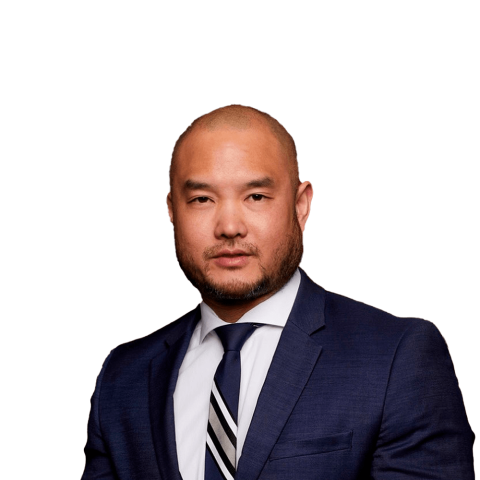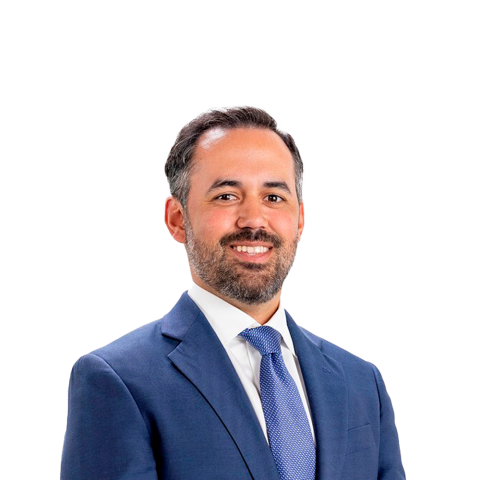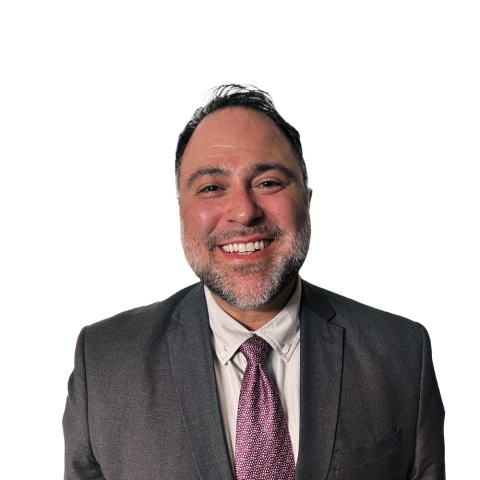Results may vary depending on your particular facts and legal circumstances. The attorney featured above is licensed in Florida. For a full list of attorneys in your state please visit our attorney page.
Workers' Compensation Benefits in California
Work injuries can turn life upside down. We fight for injured workers to access the medical care and wage support they’re entitled to.
Results may vary depending on your particular facts and legal circumstances. The attorney featured above is licensed in Florida. For a full list of attorneys in your state please visit our attorney page.
California Personal Injury Lawyers
We’re proud to fight for our neighbors. Meet the attorneys from your community.
100,000+ Five Star Reviews
The reasons why clients trust Morgan & Morgan.
Based on select nationwide reviews.
Results may vary depending on your particular facts and legal circumstances.
Our Results
Results may vary depending on your particular facts and legal circumstances.
How It Works
Focus on your recovery. We'll take care of the rest.

Submit your free evaluation
Start your claim

Meet your legal team

We fight for more
Results may vary depending on your particular facts and legal circumstances. The attorneys shown in these photos may not be licensed in your state. To find an attorney licensed in your area, please visit our attorney page.
Local Care
Backed by America’s Largest Injury Law Firm.
$25 Billion
Recovered for clients
nationwide700,000+
Clients and families
served1,000+
Attorneys across
the country1
Click may change your life
The attorney featured above is licensed in Florida. For a full list of attorneys in your state please visit our attorney page.
Results may vary depending on your particular facts and legal circumstances.
In the Community
Discover the local Morgan & Morgan experience with news, events, and partnerships.
Learn More
Injured and not sure what to do next? We'll guide you through everything you need to know.
Get answers to commonly asked questions about our legal services and learn how we may assist you with your case.
What Are the Most Common Types of Workplace Accidents?
One of the many responsibilities of an experienced workers’ compensation involves helping clients submit accurate information for employers to draft formal incident reports. One important section of an incident report regards the type of accident that caused you harm. With more than 35 years of experience handling workers’ compensation cases, our team of highly-rated attorneys has discovered four of the most common types of workplace accidents.
Slip and Fall
Slip and fall incidents represent the most common type of workplace accident because they can happen at any time in every type of industry. However, employees that work in damp conditions face a higher likelihood of succumbing to a slip and fall incident. Workers in the construction, hospitality, and home improvement industries are especially vulnerable to sustaining injuries as a result of a slip and fall incident. A slip and fall can cause a fractured wrist, as well as whiplash and head trauma.
Repetitive Motion
Workers that make the same movements numerous times a day can develop repetitive motion injuries. This type of injury can afflict just about any area of the body, although the injury develops more often in the arm and/or wrist. Administrative assistants that spend most of each workday typing can develop Carpal Tunnel Syndrome (CTS), which is a highly painful repetitive motion injury that can force a victim out of work at least temporarily.
Fall From a Height
A slip and fall typically results in a fall of just a couple of feet. Therefore, the injuries sustained are not as serious as a fall from an elevated position. Warehouse workers that climb up and down ladders to stock products are susceptible to this type of workplace injury, as are construction workers perched on scaffolds hanging dozens of feet above the ground. A fall from an elevated position can produce a permanent disability such as a damaged spine or even a life-threatening injury that requires a series of surgeries to mitigate excruciatingly painful symptoms.
Incorrect Lifting Technique
One of the easiest workplace accidents to prevent is also one of the most common types of workplace accidents. During the onboarding process, virtually every business devotes time to workplace safety training. One of the topics addressed concerns how to lift objects properly. Employees should lift objects with their knees, not their backs and arms. The result of following an incorrect lifting technique can generate debilitating back spasms, as well as severe pain that develops in the shoulders.
What Are the Workers’ Compensation Benefits in California?
California offers four broad categories of workers’ compensation benefits: Medical care, temporary disability, permanent disability, and job displacement.
Medical Care
California has expanded workers’ comp benefits by allowing claimants to request compensation to cover medical expenses. Medical care expenses include diagnostic tests, treatment programs, and physical therapy sessions. If you file a workers’ compensation claim to cover the value of medical expenses, you must receive medical care from a healthcare provider registered in the California Medical Provider Network (MPN). Every healthcare provider registered in the California MPN must follow the medical treatment guidelines established by a process called Utilization Review (UR). An independent physician either approves, denies, or modifies a treatment request.
Temporary Disability
Temporary disability represents a type of workers’ compensation benefit that covers the value of lost wages. This type of workers’ compensation benefit assumes a claimant eventually returns to work in some capacity. In the interim, an employer’s workers’ compensation policy pays the temporarily disabled employee lost wages to help the worker avoid digging a deep financial hole. California workers’ compensation standards require the assigned physician to examine an impacted worker every 45 days, with the physician recommending when the worker can return to the workplace and what restrictions the employer should place on the returning employee.
Permanent Disability
While temporary disability benefits cover the value of past wages, approval of permanent disability benefits covers the value of future wages. California has established a scale for rating a disability, which runs from zero to 100 percent. If an injured worker receives a disability rating below 100 percent, the California workers’ compensation system views the injured worker as partially disabled. According to California law, claimants receive permanent disability benefits for the remainder of their lives.
Job Displacement
In addition to receiving permanent disability benefits, injured employees that cannot return to work might qualify to receive a supplemental job displacement voucher valued at as much as $6,000. To avoid having to cover the cost of a job displacement voucher, an employer must offer an injured worker alternate, modified, or regular work. The work offered must pay at least 85 percent of the salary earned by the employee in the most recent job, as well as be located within a reasonable commuting distance from the injured employee’s home. Employers also must offer work lasting for at least 12 consecutive months.
What Is the Workers’ Compensation Claim Process?
How you handle the aftermath of a workplace accident goes a long way toward determining whether you receive compensation to cover financial losses.
Get Treated for Your Injuries
By far the most substantial financial loss concerns the money spent on medical care. This means you must submit copies of medical bills and records with your workers’ compensation claim form to be considered for financial assistance. If you feel healthy enough to remain at work to gather evidence and get the names and contact information of witnesses, you should eventually meet with a healthcare provider to determine the extent of your injuries.
Notify Your Employer
Each of the 49 states that require employers to purchase workers’ compensation insurance has set a deadline for injured workers to notify their employers about a workplace accident. Employers need to know about a workplace accident to submit a formal incident report to the California Division of Workers’ Compensation. The formal incident report should include information pertaining to what caused the workplace accident, the extent of the worker’s injuries, and a comprehensive description of what happened before, during, and after the workplace accident.
File a Workers’ Compensation Claim
The most important responsibility of a workers’ compensation lawyer is to ensure a client files an accurate and fully completed workers’ comp claim form. Just one mistake, such as submitting an incorrect phone number, can lead to the denial of a claim. Your workers’ compensation claim should include the physical evidence that proves you sustained one or more injuries in the workplace. Physical evidence can include photographs of your injuries, as well as security camera footage captured at the scene of the workplace accident.
Wait for a Decision
Another prominent role of a workers’ compensation lawyer is to monitor the progress of your claim. You have a much better chance of receiving a prompt review of your claim if you hire an experienced workers’ compensation lawyer. Your lawyer also provides legal support if your employer’s insurance company denies your claim for financial assistance. If the insurer denies your claim, your attorney can either appeal the decision or request the insurance adjuster reviewing your case negotiate a settlement.
Be Proactive With Your Workers’ Compensation Claim
After sustaining one or more injuries in the workplace, it can be difficult to navigate the often-complex workers’ compensation process in California. Hiring a workers’ compensation lawyer from Morgan and Morgan is the right choice for several reasons.
Our workers’ compensation attorneys only represent employees that sustained injuries in the workplace. Many law firms assign workers’ compensation lawyers that have represented employers in the past. This type of conflict of interest means an attorney might not have your best financial interests in mind. Because we only represent workers, you can expect 100 percent effort and legal support from the workers’ compensation lawyer you hire from Morgan and Morgan.
Morgan and Morgan also assigns attorneys that represent clients from the day of the free case evaluation to the day when a claim gets resolved. The last thing you can afford is to meet with an attorney for a free case evaluation, only to have the lawyer disappear for the rest of your case.
If you still have questions about what benefits California workers are eligible for through workers' compensation or require legal assistance to get your benefits, schedule a free case evaluation with Morgan and Morgan to learn more.















































